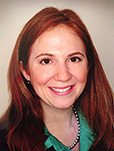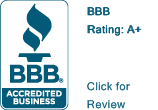Neustein Law Group, PA prevailed in six separate foreclosure appeals across the State of Florida this summer.
In Stoltz v. Aurora Loan Services, LLC, the Second District Court of Appeal ruled that Neustein Law Group successfully challenged the bank’s right to bring the foreclosure action, which resulted in a dismissal. In that case, Neustien Law Group successfully argued that Aurora Loan Services, LLC did not prove that they had the right to foreclose.
In HSBC Bank USA v. Magua, Neustein Law Group challenged a final judgment of this 2007 foreclosure case based on Hearsay evidence and lack of Standing. After Neustein Law Group filed its initial brief attacking the bank’s right to foreclose and the evidence used at trial, the bank filed a confession of error, resulting in another win for the homeowners.
The Fourth District Court of Appeal affirmed two more victories by Neustein Law Group against Deutsche Bank National Trust Company, as Trustee for Harborview Mortgage Loan Trust Mortgage Loan Pass-Through Certificates, Series 2007-5 v. Preddie and Deutsche Bank Trust Company Americas as Trustee RALI2006-QS6 v. Page.
The Fourth District Court of Appeal also reversed in part Lasala v. Nationstar Mortgage, LLC, due to the bank’s failure to prove the amount owed. In that case, Neustein Law Group successfully argued that the bank failed to prove the amount of damages sought in the Final Judgment. The case was remanded back to the trial court.
In 575 Adams, LLC v. Wells Fargo Bank, Neustein Law Group represents a non-borrower who was wrongfully denied his right to conduct discovery and take the deposition of the bank’s trial witness. The Third District Court of Appeal quashed the lower court’s order granting the bank’s Motion for Protective Order. This case affirmed that a property owner has the legal right to aggressively defend a foreclosure action even if he or she is not the original Borrower.
The attorneys and staff at the Neustein Law Group, PA have been defending foreclosures longer than most any other firm in the State of Florida. Led by Frederick Neustein, Esq. and Nicole Moskowitz, Esq., Neustein Law Group, PA is a boutique commercial litigation firm headquartered in Aventura, Florida in Miami-Dade County and has several convenient satellite offices located twenty minutes from wherever you are in Miami-Dade County, Ft. Lauderdale/Broward County, Boca Raton, West Palm Beach, Palm Beach County, and throughout the state of Florida. Their direct phone number is 305-531-2545 or (888)400-ATTY. Website is www.Stopforeclosurelawyer.com

Nicole Moskowitz, Esq

Frederick A Neustein, Esq










